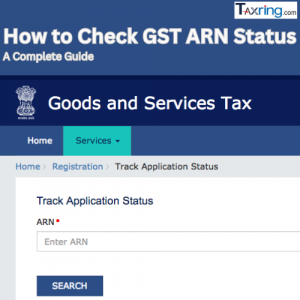
Discover the Best Corporate Tax Rate in India Today
Corporate tax Rate in India is a vital element of business finance that impacts companies across all sizes and industries. This tax is levied on a corporation's profits, making it crucial for effective financial planning, compliance, and strategic decision-making. In this blog, we will explore the fundamentals of corporate tax, including its purpose, how it is calculated, the applicable rates, and its overall impact on businesses. Understanding these intricacies is essential for optimizing financial performance and navigating the complexities of the tax landscape.
What Is Corporate Tax in India 2024?
Corporate tax is a direct tax imposed by the government on the income or profits earned by corporations. Unlike individual income tax, which applies to personal earnings, corporate tax specifically targets business entities, including both domestic and multinational companies.
The revenue generated from corporate taxes serves as a crucial source of income for governments, funding essential public services, infrastructure projects, and various governmental functions. Understanding corporate tax is vital for businesses, as it influences financial strategies and overall profitability.
Budget 2024: Key Changes to Corporate Tax Rates You Need to Know
In the Union Budget 2024, Finance Minister Nirmala Sitharaman announced a significant reduction in the corporate tax rate for foreign companies, lowering it from 40% to 35%. This move aims to enhance the investment climate in India and attract more foreign direct investment (FDI).
The adjustment reflects the government’s commitment to fostering a more competitive business environment, encouraging multinational corporations to expand their operations in India. This reduction in the corporate tax rate is expected to boost economic growth and create more job opportunities.
Corporate Tax Rate in India 2024
Here’s a comprehensive overview of the various corporate tax rates applicable in India, along with the relevant conditions for each section:
| Section | Conditions | Tax Rate |
|---|---|---|
| First Schedule to Finance Act, 2010 | Applicable if the company’s turnover or gross receipts are less than ₹4 billion in the previous year. | 25% |
| Section 115BA | - Established and registered on or after March 1, 2016. | 25% |
| - Engaged in manufacturing or production. | ||
| - Does not claim specified exemptions, incentives, or deductions. | ||
| Section 115BAA | - Does not claim any specified exemptions, deductions, or incentives. | 22% |
| Section 115BAB | - Established and registered on or after October 1, 2019. | 15% |
| - Engaged in manufacturing or production. | ||
| - Manufacturing commences on or after October 1, 2019, but on or before March 31, 2024. | ||
| - Does not claim any specified incentives, exemptions, or deductions. | ||
| First Schedule to Finance Act, 2010 | Applicable to any other domestic company that does not fall under the specific categories mentioned above. | 30% |

Tax Deductions Applicable on Corporate Tax
Strategic utilization of deductions, exemptions, and rebates, along with efficient management, can significantly minimize the corporate tax payable. Corporate Tax Rate in India Here are some key deductions available to companies:
- Capital Gains Exemptions:
- Gains can be taxed at a flat rate of 12.5% or 20%, depending on the nature of the gain. Certain sections, such as 54D, 54G, 54GA, and 54EC, may provide exemptions.
- Charitable Contributions:
- Contributions to eligible charities can be 50% to 100% tax-exempt under Section 80G, subject to specific terms and conditions.
- Dividend Rebates:
- In some cases, dividends may qualify for rebates, which can help reduce overall tax liability.
- Depreciation Deductions:
- Companies can claim a 15% deduction for the depreciation of old assets like machinery. An additional 20% deduction is available for new assets used in manufacturing, production, or in the business of power generation, transmission, or distribution.Corporate Tax Rate in India
- Job Creation Incentives:
- Deductions are available for companies that employ new workers, providing a financial incentive for job creation.
By leveraging these deductions, companies can effectively manage their tax obligations and enhance their financial performance.
Corporate Tax Planning
Just like individuals, companies can significantly reduce their tax liability through effective tax planning each year. This process involves minimizing tax outflows by understanding the scope of expenditures, investments, and treasury operations. Companies can also defer tax payments on incomes that are not essential within the financial year, such as interest income and capital gains. Additionally, leveraging available deductions allows businesses to legally minimize their tax liabilities.

Basics of Corporate Tax Planning
Corporate tax planning To optimize tax management and enhance financial efficiency, understanding the fundamentals of corporate tax planning is crucial. Here are key points to consider:Corporate Tax Rate in India
- Understand Relevant Tax Laws:
Familiarize yourself with the tax laws applicable to your business, including the Income Tax Act of 1961 and the Companies Act of 2013. A solid understanding of these regulations empowers you to make informed decisions. - Maintain Accurate Records:
Effective bookkeeping is the backbone of successful tax planning. Many small businesses struggle with organization, but maintaining orderly records of income, expenses, receipts, and invoices is essential. Accurate records help you claim eligible deductions and report income correctly. - Maximize Deductions and Exemptions:
Identify and take full advantage of available deductions and exemptions. Reducing your taxable income through these provisions can significantly lower your Corporate Tax Rate in India burden. Stay updated on tax incentives and schemes provided by the central government, as these can lead to substantial savings and improve financial opportunities for your business.
Corporate Tax Rate in India By implementing these strategies, companies can enhance their tax efficiency and contribute to their overall financial health.
Conclusion
The Corporate Tax Rate in India for domestic and foreign companies is crucial, influencing profitability and strategic decisions. By effectively managing corporate tax obligations, companies can ensure compliance while enhancing their financial performance and competitive edge in the global marketplace.
What is corporate tax in India?
Corporate tax is a tax levied on a company's net profits. All companies, both private and public, registered in India under the Companies Act, are required to pay corporate tax.
What is the corporate tax rate in India?
The corporate tax rate for domestic companies in India is 25%, effective from AY 2024-25. For foreign companies, the rate has been reduced to 35% from the previous 40%.
Is corporate tax a direct tax?
Yes, corporate tax is classified as a direct tax in India, similar to income tax.
What is the difference between corporate tax and income tax?
Corporate tax is exclusive to corporate entities, whereas income tax is generally applicable to individuals. However, some business models' profits may be taxed as individual income.Corporate Tax Rate in India
How often do corporations need to pay taxes?
Corporations are required to pay estimated taxes annually and file an annual tax return.Corporate Tax Rate in India
What are the Current Corporate Tax Rates in India?
Corporate Tax Rate in India , As per the latest updates, domestic companies in India are subject to a corporate tax rate of 25%. Additionally, new manufacturing companies established on or after October 1, 2019, can benefit from a reduced tax rate of 15%, provided they meet certain conditions. This structure aims to encourage investment and growth in the manufacturing sector.




